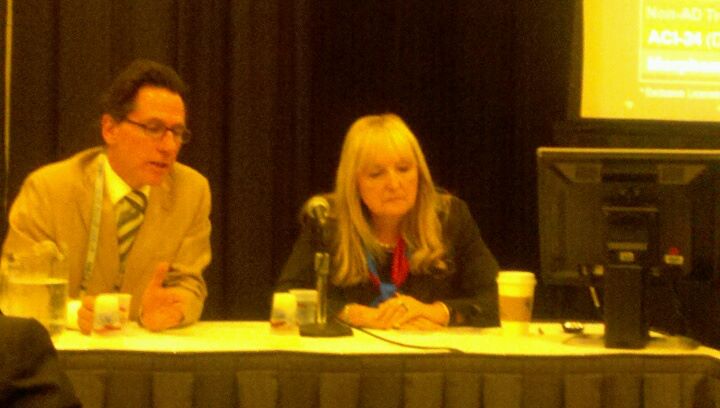Fareed Zakaria: Will US maintain its innovation lead in new global landscape?
CNN host Fareed Zakaria said yesterday that despite the world’s current economic and political difficulties, he is optimistic about the future but that it is by no means clear “who will be winners and the losers” in what he called a “new global landscape.”
In a keynote talk at the Biotechnology Industry Organization International Convention in Boston, Zakaria said, that the world is currently “extraordinarily peaceful” compared with previous decade and that it is quite “unified, with a global economic system, interactive communications and technology and greater computing power than ever before. (For example, the cell phone has more computing power than did the Apollo spacecraft capsule in 1969. ” It could go to the moon, he said, but it could not tweet,” he quipped. )
In the past, he said, the US has always been able to emerge from economic difficulties due to its tremendous capacity to innovate–and in the second half of the twentieth century, maintained a substantial economic and innovative edge over other nations. But, he said, “we forget that at other times, other countries have had the edge.” He asked, “Will the US maintain its edge?”
Zakaria outlined what he called three distinct historical phases or causes that, he said, account for the US’ “extraordinary” lead:
(1) During World War II, the forces of destruction had a huge spillover effect. Germany, a major US competitor, was “leveled to the ground” and England was bankrupted.
(2) During the Cold War, fears of losing out to the USSR in the 1950s led the US government to make double the investment in US companies than it is making now; government purchases of US computers and components accounted for the lion’s share of profits for those companies, until the cost curve began to decline. What is more, the government invested heavily in higher education, so that citizens could obtain the world’s finest education in public universities” without paying a cent”
(3) “The third pillar was Jews ” he said. “If Hitler had not made the morally reprehensible to target Jews, the US would not have had the influx of scientists who created the bomb, transformed theoretical physics and gave the US a 30-year lead.”
What this shows, he said, is that America’s propensity of innovate is “not due to DNA,” but rather, that there are specific historical reasons why the US took a commanding lead.
Today, he said, there is a new global landscape in which it is possible for smaller nations– such as Denmark, where the Global company Novo Nordisk, known for its diabetes treatments, was founded– to be at the leading edge in certain technologies.
What is more, Zakaria pointed out, innovation does not necessarily correlate directly with spending for research and development. Apple is often considered one of the most innovative companies in the world–but that is because it understood consumers and how to create a new need, rather than because it offers the most cutting edge technology, he said. “Big company and big country advantages no longer hold, going forward.”
On a panel following the talk, Kiran Mazumdar-Shaw, founder and chair of the Indian biotechnology company Biocon, said that the current process of biotechnology development is unsustainable and most products are too expensive to benefit most of those who need them. “Countries in Asia must reinvent the process of drug innovation,” she said.
Greg Lucier, CEO of Life Technologies, which supplies systems, biological reagents and services to enable scientific research, said that new genomics tools will be the stimulus to streamline innovation, cut costs, and change the future of human health.
Derek Hanekom, South Africa’s Deputy Minister of Science and Technology emphasized the importance of government’s role in providing access to care and sanitation. Governments can promote innovation by recognizing and supporting it, reducing unnecessary regulations yet adding regulations to promote competition, and supporting education to develop a skilled workforce.
Yucel Altunbasak, president of Tubitak, the Scientific and Technological Research Council of Turkey, listed financing, talented people, regulatory framework, and a governmental support mechanism as keys to helping emerging markets do “what the US did in the 1950’s.”












